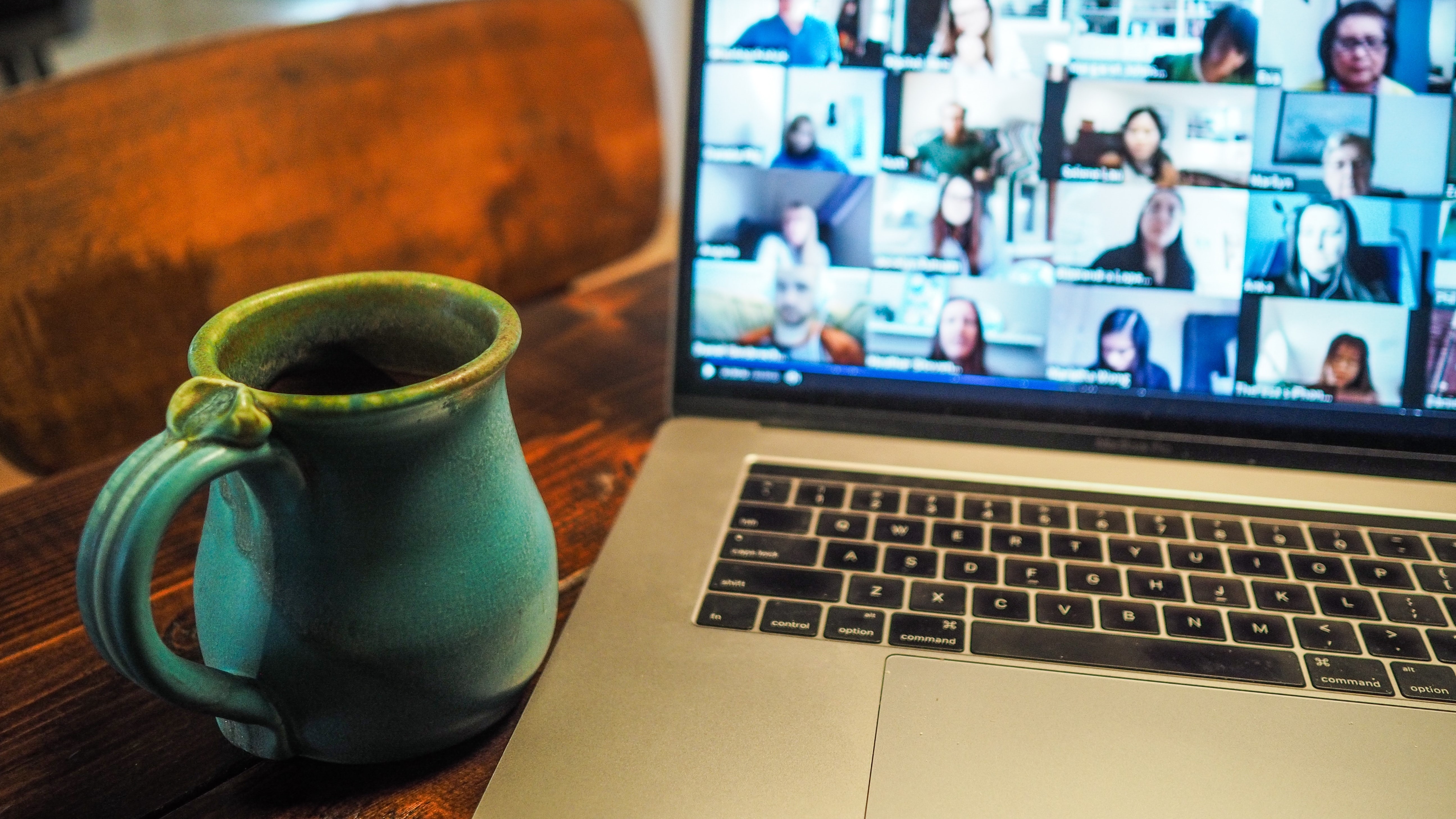In the days of COVID-19, there are more remote teams than ever before. People from entry level to the C-suite are all experiencing similar challenges. Let’s play a game of remote meeting bingo: any of these phrases sound familiar?
“Hi, who just joined?”
“Sorry, I was on mute. As I was saying …”
“BARK!”
“Sorry to interrupt, go ahea–no you go ahead.”
It's enough to frustrate the best of us.
Removing the employee from the office removes the seemingly small personal interactions we relied on during in-person meetings, such as body language and other indirect communication, and adds a “social distance” that can negatively affect engagement.
Luckily, technology has evolved to the point where we can maintain constant connection. But this new reality brings with it a test of our communication and productivity skills. Here are some virtual meeting best practices to ensure you stay connected with your people and remain engaged and productive during meetings.
Virtual meeting math: divide the tasks, multiply the success
Founder and CEO of Ferrazzi Greenlight and author of Who’s Got Your Back, Keith Ferrazzi, offers a few virtual meeting best practices to consider:
1. The pre-work. Make it worthwhile by sending out an agenda with ideas or issues for people to consider. The key here is that everyone must commit to doing the prep, and the payoff is that the participants are ready to share ideas in the moment.
2. The roles. Consider sharing the responsibility for meeting management tasks. Asking someone to help with communication flow, another to take notes, and someone else to summarize at the end will help your team stay engaged. Another strategy is to have everyone give a brief report at the end with their takeaways. The challenge is to keep the process fresh, so think about changing it up every few weeks.
3. The DRI. Here at BOB, we conclude meetings by assigning a Directly Responsible Individual, or DRI, to manage the path forward for any new ideas and tasks that were generated. This ensures that nothing falls between the cracks and avoids the common group-think phenomenon we all call “someone else will get that.” The DRI can bring in other folks for help or delegate aspects of the task but is ultimately responsible for its completion.
Seeing is pleasing
When considering the virtual environment for your meeting, the use of video conferencing will aid in keeping your team focused and engaged. Video conferencing has the power to enable verbal and non-verbal communication, as well as offer the opportunity for closeness and engagement.
Because of the distance, digital meetings require special care to help participants feel connected. Consider starting off your meetings with a check-in, short ice breaker, or pose a question for a moment of reflection. Be sure to give shout-outs to bring positive attention to a colleague, a project, or an event that deserves recognition.
A virtual meeting is only as good as its tech
In the virtual world, there are endless options for digital conferencing. You can stream video, share audio or screens, co-work on a project or document, and view the webcams of many attendees at once with the right virtual meeting software. PCMag outlined its top 10 picks for video conferencing software in 2020. They offer the pros and cons of audio and video quality, collaborative tools, platform integration, and price.
Once you have the right software in place, be sure that your team knows how to use it and are comfortable asking for help when needed. It’s always a good idea to test your tech and allow a few minutes for troubleshooting before the start of a meeting. Consider designating a Virtual Meeting Leader. This person would act as speaking moderator and assist with tech support as needed.
The digital water cooler
There can be more stress surrounding work in the new virtual environment. During a meeting, the pressure is on to stay focused and make good use of each other’s time. Sometimes it’s the relaxed vibe of the “after party” that gives folks license to vent, throw out ideas, and say what they really think. There can be a lot of valuable information that comes from these post-event conversations. Ferrazzi suggests using the last few minutes of a meeting to get everyone’s “water cooler thoughts” to understand any challenges team members are facing. This gives space for natural interactions and opportunity to create progress.
Humans are social beings by nature, and the social interactions we enjoyed in an office setting are not currently possible. It’s important to keep the friendly conversations flowing in our new remote reality. Consider designating virtual meeting time for social interactions unrelated to work. Do you usually chit chat with a coworker every morning near the coffee maker? Send her an invite to catch up for five minutes one morning. If you miss going to happy hour with your colleagues, make it virtual. No bar necessary!
Adjusting to the new normal
Each day brings new challenges after the abrupt introduction of COVID-19 into the world. Everyone is adapting to something new that wasn’t necessary a short time ago. And yet, there will always be meetings. It is important to adjust and embrace new technologies and strategies that enable good communication during this time to keep processes flowing and your team’s connections strong.




